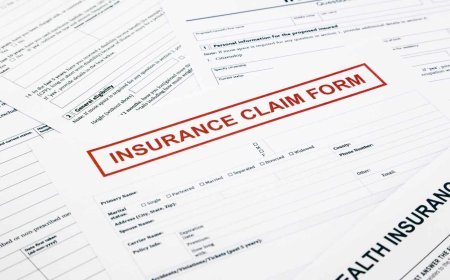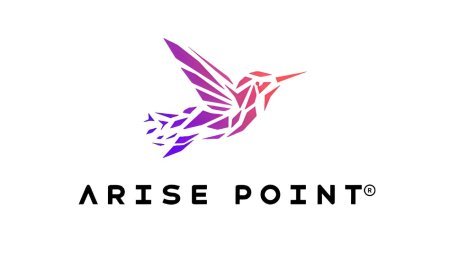Medicare Myth: Not All Prescription Drugs Are Covered

Medicare is a vital healthcare program for seniors and people with disabilities, offering coverage for a wide range of medical services. However, there are several misconceptions about what Medicare actually covers, particularly when it comes to prescription drugs. One of the most common myths is the belief that Medicare covers all prescription drugs. This is far from true, and understanding the realities of Medicare prescription drug coverage is essential for beneficiaries in states like Florida and Arizona, where large populations of seniors depend on Medicare.
This article aims to clarify this common Medicare myth, explain the nuances of prescription drug coverage under the program, and help individuals in Florida and Arizona make informed decisions about their healthcare needs.
The Scope of Medicare Coverage
Medicare is a federal health insurance program that consists of different parts, each covering specific types of healthcare services:
- Medicare Part A: Covers inpatient hospital care, skilled nursing facility care, hospice care, and some home health services.
- Medicare Part B: Covers outpatient care, doctor visits, preventive services, and some medications that are administered in a medical setting.
- Medicare Part C (Medicare Advantage): Offers an alternative way to get Medicare benefits through private insurance companies, often including additional coverage for services like vision, dental, and prescription drugs.
- Medicare Part D: Provides prescription drug coverage through private insurance plans.
It's crucial to note that Medicare Part A and Part B do not cover most prescription drugs. The misconception that Medicare covers all prescription drugs stems from confusion over the scope of these parts and the role of Medicare Part D in prescription coverage.
Why the Myth Exists
The myth that Medicare covers all prescription drugs likely arises due to the assumption that Medicare, being a comprehensive health insurance program, would automatically cover all medications. This assumption is partly fueled by the fact that Medicare Part A and Part B provide significant health coverage for hospital stays, outpatient services, and certain medical treatments. However, prescription medications are not generally covered under these parts unless they are administered in a hospital or healthcare setting (such as chemotherapy or some vaccines).
Moreover, beneficiaries often think that Medicare Advantage plans (Part C), which are marketed as comprehensive plans, will automatically cover all prescriptions. While Medicare Advantage plans often include prescription drug coverage, it is essential to understand that the Medicare Part D coverage, which is included in many Medicare Advantage plans, still comes with limitations.
Medicare Part D: Prescription Drug Coverage
Medicare Part D is the part of the program specifically designed to help cover outpatient prescription drugs. However, it’s important to recognize that not all prescription drugs are covered under Part D. Each Part D plan, which is offered by private insurance companies, has its own formulary (list of covered drugs). This formulary can vary greatly depending on the plan, and not all drugs are included.
For example, Florida and Arizona residents may find that certain medications are covered in one Part D plan but not in another. Additionally, certain medications may require prior authorization, step therapy, or have quantity limits, making it important for beneficiaries to review their plan’s formulary and coverage rules carefully.
What Does Medicare Part D Cover?
Medicare Part D plans cover a wide variety of prescription medications, including:
- Generic drugs
- Brand-name drugs
- Some vaccines and other immunizations (if not covered by Part B)
- Specialty drugs, including treatments for conditions like cancer, HIV, and multiple sclerosis
However, some drugs that may seem essential for a patient’s treatment are not included in the Part D formulary. Medications for conditions like erectile dysfunction or weight loss are often excluded, as are over-the-counter medications that don't require a prescription.
Key Limitations of Medicare Part D
Medicare Part D is designed to provide prescription drug coverage, but it does have some limitations:
-
Not All Drugs Are Covered: As mentioned earlier, each plan’s formulary is different. While some drugs are covered, others may not be. Beneficiaries should carefully check whether their medications are included.
-
Formulary Changes: Part D formularies can change annually, so the drugs that are covered this year might not be covered next year. This is why it’s essential to review your plan each year during the Medicare Open Enrollment Period (October 15 to December 7).
-
Costs and Deductibles: Even if a drug is covered, the out-of-pocket costs associated with it can vary depending on the plan. Deductibles, co-pays, and co-insurance rates are all factors that can influence how much you pay for prescriptions.
-
Coverage Gaps: Part D plans have a coverage gap, often referred to as the “donut hole.” Once you and your plan have spent a certain amount on medications, you may enter the coverage gap and face higher out-of-pocket costs until you reach the catastrophic coverage phase.
What About Medicare Advantage Plans in Florida and Arizona?
In states like Medicare Florida and Arizona, many Medicare beneficiaries choose Medicare Advantage plans, which are offered by private insurers. These plans typically combine Part A, Part B, and often Part D into one plan. Medicare Advantage plans may provide prescription drug coverage, but as with standalone Part D plans, the prescription drugs covered vary by plan.
It’s important to note that not all Medicare Advantage plans include Part D coverage, so individuals should carefully review the benefits of each plan before enrolling. Additionally, beneficiaries should consider whether the plan’s formulary covers the medications they rely on.
How to Ensure Proper Prescription Drug Coverage in Florida and Arizona
To ensure you have the right prescription drug coverage, follow these steps:
-
Review Your Medications: Make a list of all the prescription drugs you take regularly and check if they are covered under Medicare Part D or a Medicare Advantage plan in your area.
-
Compare Plans: Use the Medicare Plan Finder to compare Part D plans and Medicare Advantage plans in Florida or Arizona. Make sure the plan you choose covers your medications at an affordable cost.
-
Annual Review: Medicare Advantage plans and Part D plans can change their coverage and costs annually. Review your plan during the Open Enrollment Period to ensure it still meets your needs.
-
Talk to an Expert: If you're unsure about the coverage options, consider speaking with a Medicare expert or insurance broker to guide you through the process and help you make the best choice.
Conclusion
The belief that Medicare covers all prescription drugs is a common myth. While Medicare provides vital healthcare coverage, prescription drug coverage is only fully available through Medicare Part D or a Medicare Advantage plan that includes prescription drug benefits. In states like Florida and Medicare Arizona, it’s essential for beneficiaries to carefully review the available plans, check drug formularies, and understand their coverage options to ensure they’re not caught off guard by unexpected out-of-pocket costs. By being proactive and informed, you can ensure that your prescription drug needs are met, keeping your healthcare costs manageable.
What's Your Reaction?



































































